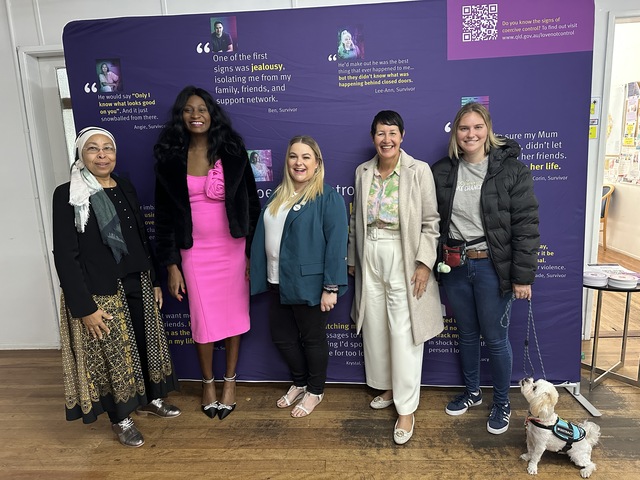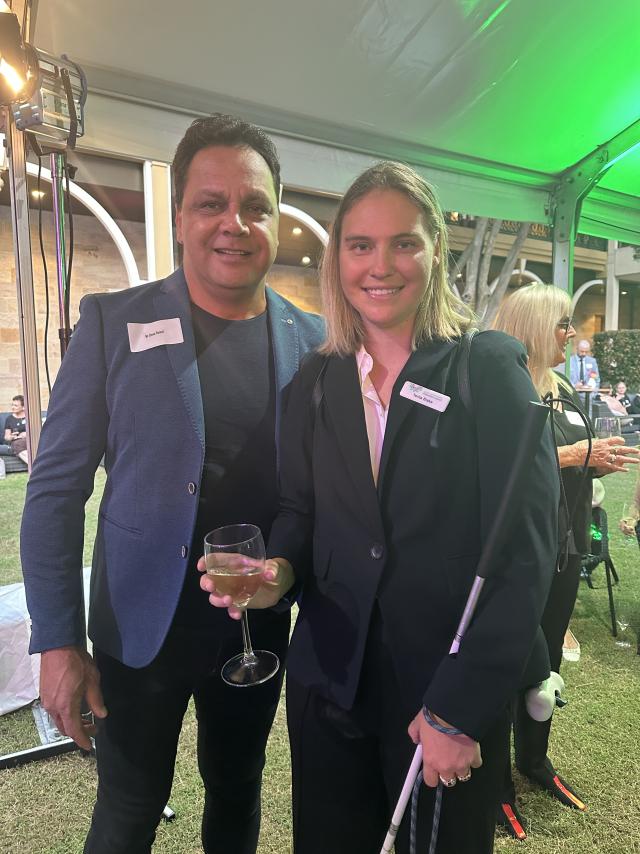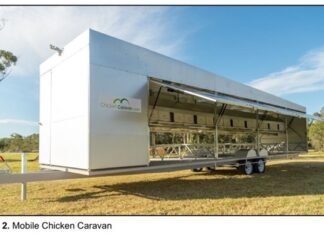For Torita Blake, her start to life is one that so many of us could never imagine.
Right from the first month of being born, Torita was physically abused which led to a severe brain injury, a broken rib and collarbone and from there she was diagnosed with mild cerebral palsy, blindness and epilepsy.
Then from the age of seven to when she moved out of home at 19, she was being sexually abused.
Scarily, Torita didn’t actually know that her disabilities were caused by physical abuse, because growing up she thought she was born with her disabilities, not finding out the truth until she was 18 years of age.
Torita said when she did find out, she wasn’t sure if she didn’t really care at the time or it was really something she didn’t want to accept it.
“It wasn’t until when my sister had her baby, that was when everything hit home for me and I thought, how can someone want to hurt a newborn baby that is so fragile,” she said.
“Also growing up, I knew I was indigenous, but I didn’t know where I was from.
“But it was when I met my biological father in my teens that I learnt where I’m from, who my mob is and continue to this day of learning about my family history.”
Torita Blake is a proud First Nations Dunghutti woman on a cultural journey to understand her heritage.
She is currently a full-time elite athlete training at the Queensland Academy of Sport, having been selected to compete for Australia on eight occasions.
She is a two-time Paralympian, a two-time medallist at the Para World Athletics Championships, and a current Paralympics Australia First Nations Advisory Group member. Her profile in athletics has given her the opportunity to work on community projects such as Deadly Choices and Athletics Australia’s Raise The Bar Academy, focused on encouraging Indigenous youth to further their academic and sporting endeavours.
As a survivor of family and sexual violence, Torita has a desire to contribute to the work of the Domestic and Family Violence Prevention Council by increasing the understanding of healing from trauma and as a national sporting hero wants to educate about domestic, family and sexual violence and how to overcome the odds.
Asked what it meant for her to represent Australia on a number of occasions, Torita said making the London 2012 Paralympic Games holds a special place in her heart.
“I was only 17, I didn’t understand what the Paralympics was, but now that I’m older and I look back at my career so far there are many proud moments, but one that sticks out to me is my medal in 2017.
“I came out about my abuse in 2015 and some people in the family did not believe me and told me I would never make an international team again or medal if I came forward to the police.
“My coach has been a huge support both on and off the track and he never game up on me even though I wanted to.
“I wanted to quit the sport and pull out of this court case I was going through in 2017, but he told me that no you don’t want to give up you’re just struggling.
“When I medalled in 2017, I found out athletes would get two medals, so I was so focused on winning a medal so I could give him his medal, making this a very special moment in my career.”
Through her story, Torita wants parents that have children with disabilities to know that their children can still grow up and achieve their own goals.
“Sometimes it may take longer, or we may have to do it a different way than what an able-bodied person would do.
“Being a victim of childhood sexual abuse, yes, we have to live with that for our whole life.
“I want to show survivors that, even though we suffered the trauma, and live with the mental health issues, we can still achieve positive things in life.
“We don’t have to go down the dark path.”
Being a part also of the Domestic and Family Violence Prevention Council means a lot to Torita.
“I always say to people there are survivors out there that will never come out about their abuse and the ones that do that can’t come forward to the police and report it.
“I will be a voice for all of those survivors, I will never be silent again.
“So being able to be a part of the Domestic and Family Violence Prevention Council and being able to talk about my own experience I hope I’m helping people understand what victims have had to experience and the ongoing mental health issues we have to deal with even after the abuse.
“Through this role alone, I have learnt so much about myself.
“I wasn’t just physically or sexually abused, I experienced coercive control even though I was a kid, and he was my stepfather.
“The council has shown me how much stronger I am working alongside the them.
“It’s not easy to sit with people that you don’t know and tell them your own experience, but we have to remember that people with disabilities can suffer domestic violence.
“In my opinion, we do at times forget to acknowledge that it does happen in the disability community.
“In saying that If we can explain to people with disabilities, what domestic violence is, what is right and wrong and if they experience domestic violence they can and should speak up.
“It is never their fault.
“For those people with higher level of disabilities that cannot speak or communicate clearly, you have to teach the wider community what the signs are to look for and making sure they come forward and be the voice for them.”










